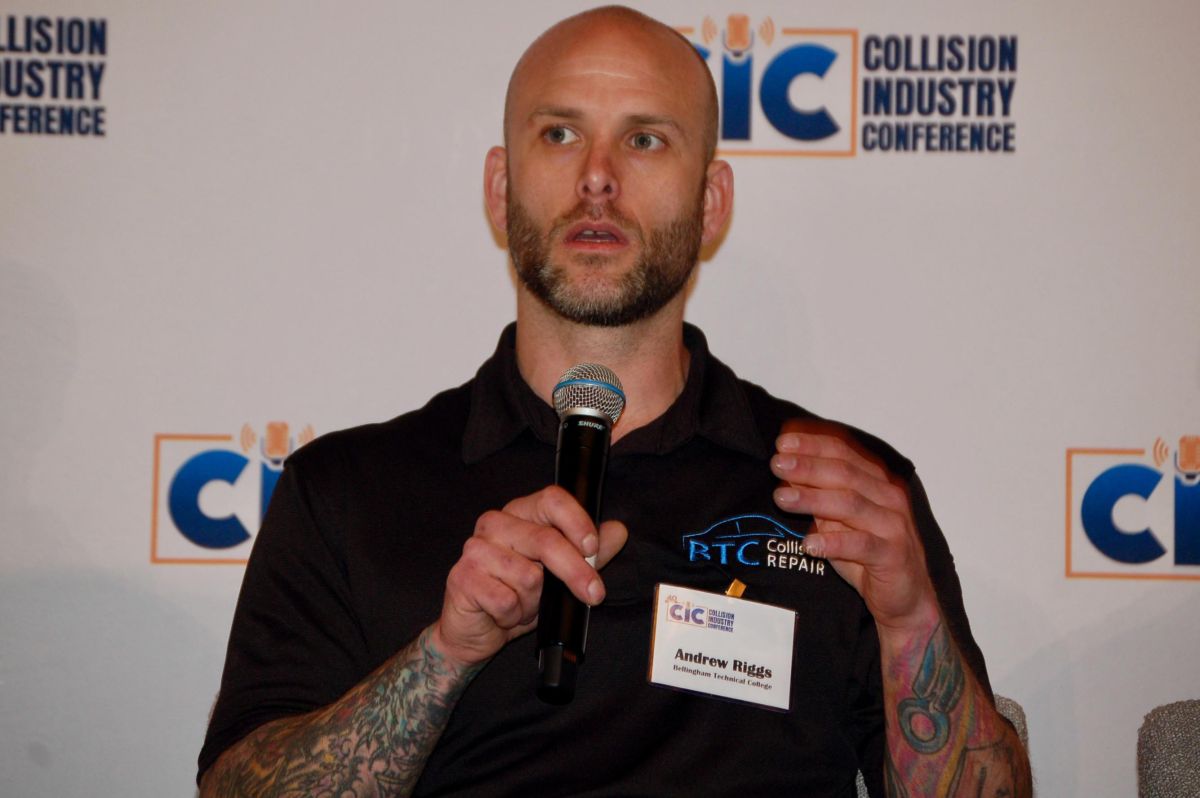Andrew Riggs, a collision repair instructor at Bellingham Technical College in Washington state, said his program made a change to help keep students engaged: They eliminated classroom time.
“We don’t sit our students down anymore and make them listen to us lecture,” Riggs said. “We moved that online. They can do that at home on their own time. And then when they come to the college, it’s all lab. So all the time we get to spend with our students is hands-on lab activities, and that’s made a huge difference.”
Challenging Public Misconceptions
Riggs was part of a panel discussion on employee recruitment and retention at the Collision Industry Conference (CIC) this spring. He said one of the primary challenges facing programs such as his is the public misperception about the industry.
“The biggest thing that we fight is the stigma of this industry from the parents,” he said. “They think you’re just going to grab a hammer and beat on metal in a dark, dirty shop, and that it’s a go-nowhere job,” Riggs said. “So we have a ‘Try a Trade’ event where we get to set up resistance welders, we get to set up our virtual painter, stuff like that. So the high schoolers come in with their parents and they get to see this equipment and understand that this is not easy. This is a complicated career. There’s a lot that goes into it. We’re electricians, we’re plumbers, we’re artists. It really does change the parents’ perspective, and that has helped a lot.”
To help prospective collision repair students and their parents see the opportunities available in the industry, Riggs sometimes asks successful graduates to share their income tax returns. He removes their personal information from the paperwork, and sets them out so students and parents can see what they’re earning.
“They don’t have to be worried about their son or their daughter going into a dead-end job,” Riggs said. “You can make a good living doing this.”
Employers Must Offer Good Pay, Benefits
That said, he has some concerns about the entry-level wages some of his graduating students are being offered.
“What I hear a lot from my students is they've spent two years of their life getting this degree,” Riggs said. “They've spent, potentially, thousands of dollars on tools. And when they look at jobs, they don't want to go into a body shop and get paid less than they would if they walked into a fast-food joint. It is a big deal to my students that they put the time and money out there to invest in themselves, and they want these shops to invest in them. So shops, in my opinion, do need to step it up a little bit and offer a little bit better pay.”
He said students in his program finish with a three-month internship in a shop, usually paid.
“If that opens the door, if that shop is happy enough with them for that three months, then it turns into full-time work after that,” he said.
Beyond wages and benefits, he said, the young people in his program are very much interested in a good work-life balance.
“They want some freedom, whether it be four-day workweeks, or the ability to build their own schedule a little bit,” Riggs said. “Maybe they can’t be in at 8 o’clock every morning because they have to get their kids off to school. From what I understand, they have no problem staying later if they can start a little later, so they can still have a family and spend some time with them.”















John Yoswick